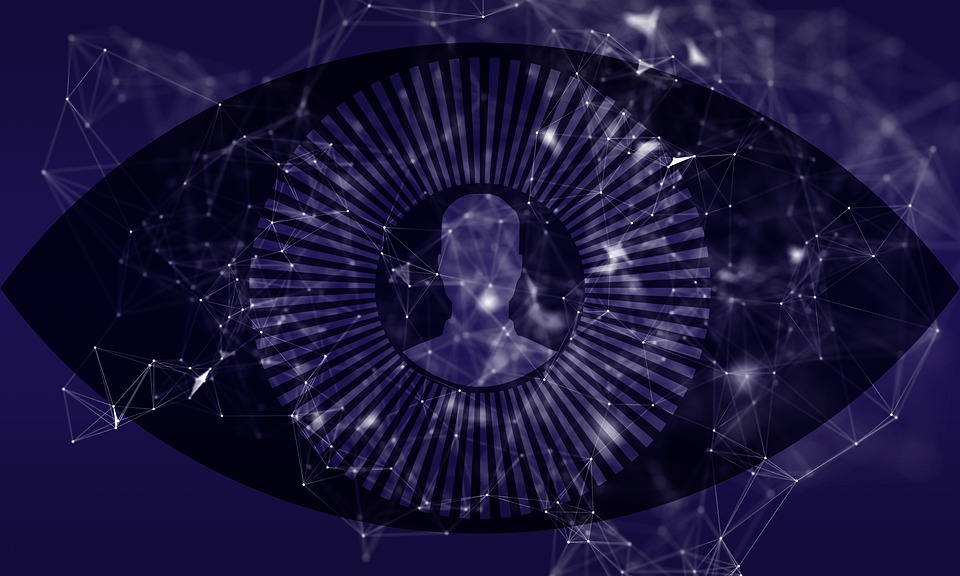Earlier this week, the world’s most wanted terrorist, Abu Bakr al-Baghdadi, was killed by American special forces in North West Syria. This operation was the culmination of co-ordinated intelligence work and President Trump thanked Russia, Iraq, Syria, Tukey and Kurdish intelligence for their help. The rise of terrorism and technological advancement are re-shaping traditional intelligence gathering. The shadowy world of Cold War espionage made famous by novels like Le Carre’s, ‘The Spy who came in from the cold’ ,now seems more nostalgic than dangerous. Ironically, Orwell’s dystopian novel, ‘1984’, published more than a decade earlier, finds increasing resonance in the Big Brother world of 21st century cyber-surveillance. But is this compatible with democracy?
Last year I interviewed Dutch security specialist, Elsine van Os, whose company, Signpost Six released a documentary (2018) called, Edward Snowden – Whistleblower or Spy. The film traces Snowden’s journey from high-level employee in various US intelligence units, to his exile in Russia, where he still lives. Variously called a hero, a traitor, a whistleblower and a patriot, Edward Snowden’s Wikileaks disclosures fuelled debates over mass surveillance and government secrecy. His revelations revealed the extent of the surveillance being carried out by American and British intelligence agencies, globally. Although Wikileaks is a 21st century phenomenon, it is worth remembering that intelligence is not. It is surely no coincidence that ancient Greek thinkers like Plato and Socrates who developed early theories of democracy and citizenship, also contemplated the role of intelligence in the security of the city state.
‘Intelligence is a necessity for democracy’ – Hayez.
The notion that intelligence and politics are one and the same, is not new. Dr. John Fox have chartered the role of espionage and the development of the nation state. He argues that information gathering of this kind has played a central role in how we understand the powers of the modern state. Listening last week to French security specialist, Philippe Hayez, I heard these ideas echoed in some of his comments. ‘Intelligence is a public service – at best’ and ‘Intelligence is a necessity for democracy’. Speaking to a room full of next generation intelligence professionals, he pointed out that intelligence has been the highest growth industry in the last decade, in both France and the Netherlands. So although we might rail against the idea of living in a ‘Big Brother’ society, this public service is not so easily dismissed.
Two apparently opposing forces – privacy and transparency, have come to the fore in recent decades. These are creating the kinds of tensions highlighted by people like Edward Snowden. The rise in the threat of terrorism has resulted in a strong push for more information gathering, more surveillance and more secrecy. Advances in technology have aided this process. But, ironically, they have also facilitated the transparency that allows the public access to large amounts of information. The result, intelligence has had to come out of the closet and clean up its act, to some extent at least.
‘Intelligence is now in the age of compliance’ – Hayez
If intelligence is to be just another area of public policy, as Hayez and other experts suggest, then legitimacy and accountability are key. This, Hayez quips, has prompted some in the business to claim, ‘We are no longer a secret service but a service with secrets’. There is, he claims, a growing acknowledgement that democracy is first and foremost about the limitation of power. This includes intelligence services. In France, the limits of such information gathering was defined by the 2015 Law on Intelligence. Similar attempts at legitimacy may be seen in the UK’s Official Secrets Act of 2011. Hayez admits that the idea that intelligence must comply with the rule of law only really began in the 1990s, in Europe. ’Intelligence is now in the age of compliance’ he tells us.
Boundaries between the foreign and the domestic are increasingly blurry.
This leads to the fundamental question, posed concisely here by the Hoover Institute. Can a government impose the secrecy that intelligence requires and still legitimately claim to be a democracy? Intelligence is valuable because of the advantage it offers, and secrecy is often necessary to protect that advantage. As Australian academic, Simon Chesterton, notes, international law tolerates intelligence activities. But spying on one’s own citizens in a democracy has traditionally been subject to legal and political restraint. However the rise of globalised terrorism and digital media have made boundaries between foreign and domestic blurry.
In the age of big data, the focus should perhaps be on how all of the collected information is used. Estonia and China provide two very different models in this regard. The small Balkan state is working towards a largely digitalised society. It has made a virtue of the new levels of transparency that technology offers. Citizens can access personal data online and see how the government is using it. In contrast, China is using wide-scale surveillance as part of their social credit system. A Big Brother style campaign apparently designed to promote virtuous behaviour amongst its citizens. Perhaps Stanfield Turner’s maxim is helpful here. Director of the CIA under Jimmy Carter, Turner oversaw major reforms at the agency after the Senate uncovered CIA surveillance aimed at American citizens. ‘When you do intelligence, the bottom line is, will it be legitimate in 20 or 30 years’ time?’

